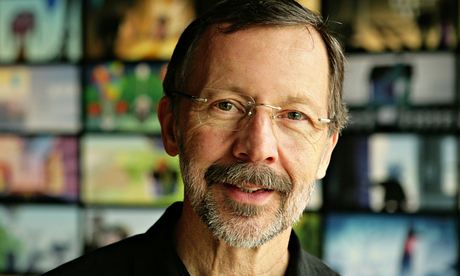
"Our fate lies within us. You only have to be brave enough to see it."
It's a mantra you might think is etched in stone somewhere, steeped in history, translated from an ancient language. But it's not a quote from the profound wisdom of the Dalai Lama – instead it was uttered by Merida, the arrow-shooting princess in Brave.
Pick any Pixar film and you'll find a whole host of bite-size insights, but this one is particularly pertinent because it relates to the company itself. Consider the studio's humble beginnings as small hardware company struggling to stay afloat and you've got to respect the founders' own bravery in realising their fate: to make the first-ever computer-animated movie.
Fast forward two decades and the Disney-owned studio has racked up an incredible 14 consecutive No 1 box office hits, raking in over £4.9bn in combined worldwide ticket sales. "To infinity and beyond" isn't the studio's official strapline, but perhaps it should be.
You can only be in the right place at the right time so often; a winning company needs a winning formula. So what's the secret to Pixar's stratospheric success? What kind of working environment do you need to capture so many hearts, headlines and awards? What can artists and businesses learn from the studio's famed creative ecosystem?
Ed Catmull, who co-founded the animation studio with Steve Jobs and John Lasseter in 1986, will be here to answer your questions about Pixar's journey and its creative work. His latest book, Creativity Inc, reveals some of those insights – Wall-E, Ratatouille and Up would all fail an elevator pitch, he writes – but if you've got a burning question about Toy Story, or just want to gain some vital know-how about what goes on behind closed doors, here's your chance.
Webchat roundup
How do you balance telling the best story with time, budget and potential burnout?
Balance is the key. We are pulled in all sorts of directions, all the time. The important thing is not one side winning but by having a balance between the different poles we end up in a better place. The one value we hold onto most dearly is that the movie has to be great. Everything else, in terms of schedules, budgets and artistic desires are all part of the dynamic balance.
One of your big lessons for creative businesses is uncoupling fear and failure – what do you mean by that?
The very nature of doing something new is that you make mistakes. But it's also our human nature that we try to avoid mistakes and the result is that people inadvertently try to steer away from them. So we try to make a point of saying that mistakes are inevitable and if we're not making some mistakes then we are avoiding the hard problems so while this is not an easy problem to solve, we try to keep ourselves faced towards the difficult and the unknown because that's where we are more likely to do something original.
What do you mean when you say that a company's communication structure "shouldn't mirror its organisational structure"?
The problem is that in an organisational structure, the managers would like everything to go through them – that actually slows things down and managers need to be okay with information going through other channels and people. As a manager, we may find things out later than other people, but that's okay and it is healthier for the group.
How long does it roughly take to make an original Pixar film?
Between 4 and 7 years.
What's the biggest lesson you've learned at Pixar when it comes to running a creative business?
I do believe that the biggest issue is any group is not how you become more creative but how do we address the blocks to creativity. Too many people try to bypass that, jumping straight to how you become a creative without understanding how much uncertainty and randomness play in our lives, the effect of holding back on candour and the fear of making mistakes. I do believe that part of the excitement of going forward in the future is addressing the unknown and the risks that come with it. I find that challenging and scary, but it's where I want to be and where the people at Pixar and Disney want to be.
Join our community of arts, culture and creative professionals by signing up free to the Guardian Culture Pros Network.

